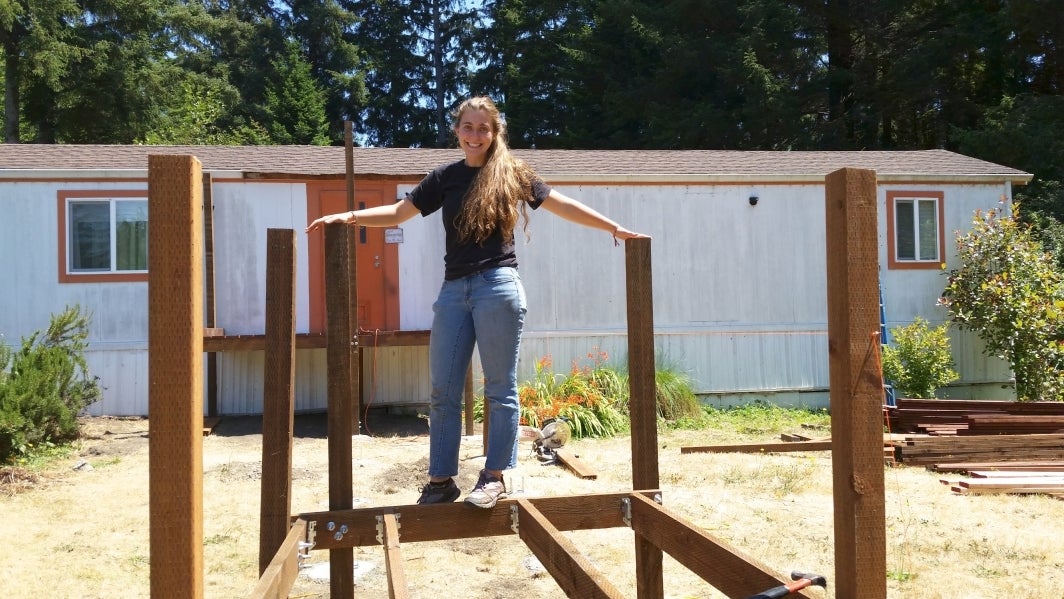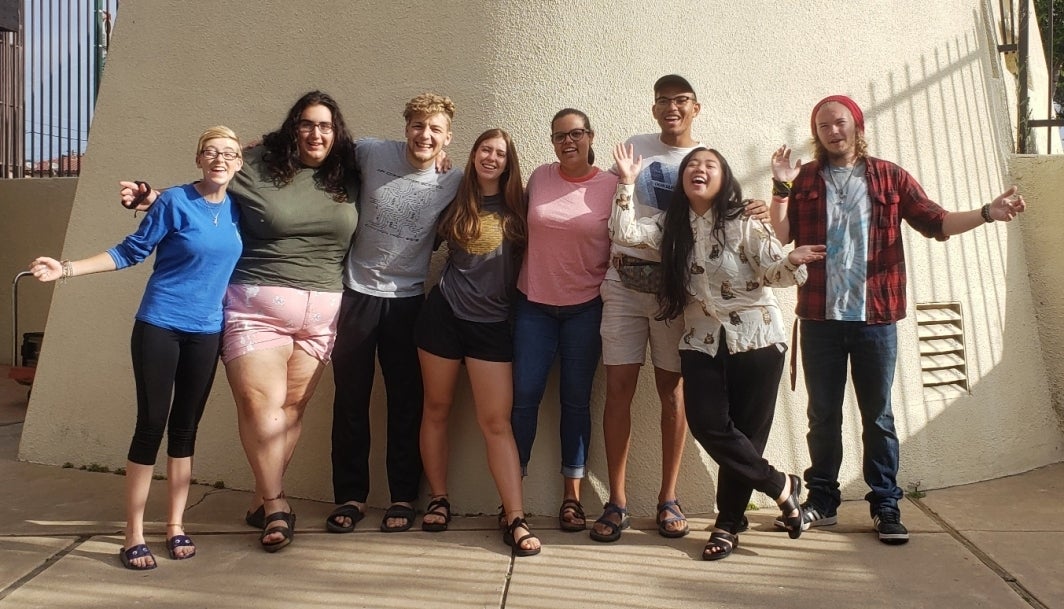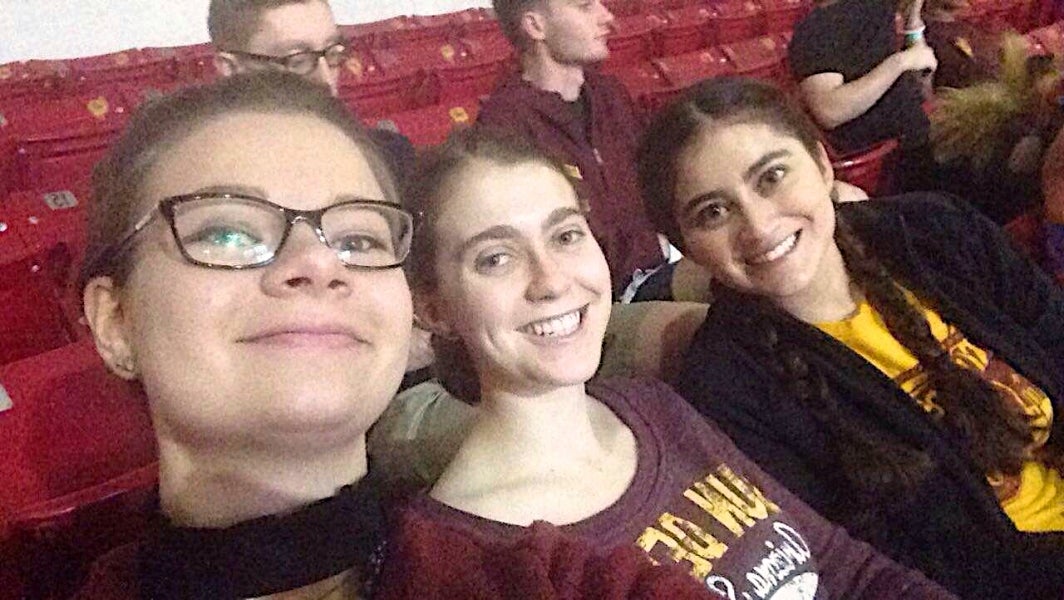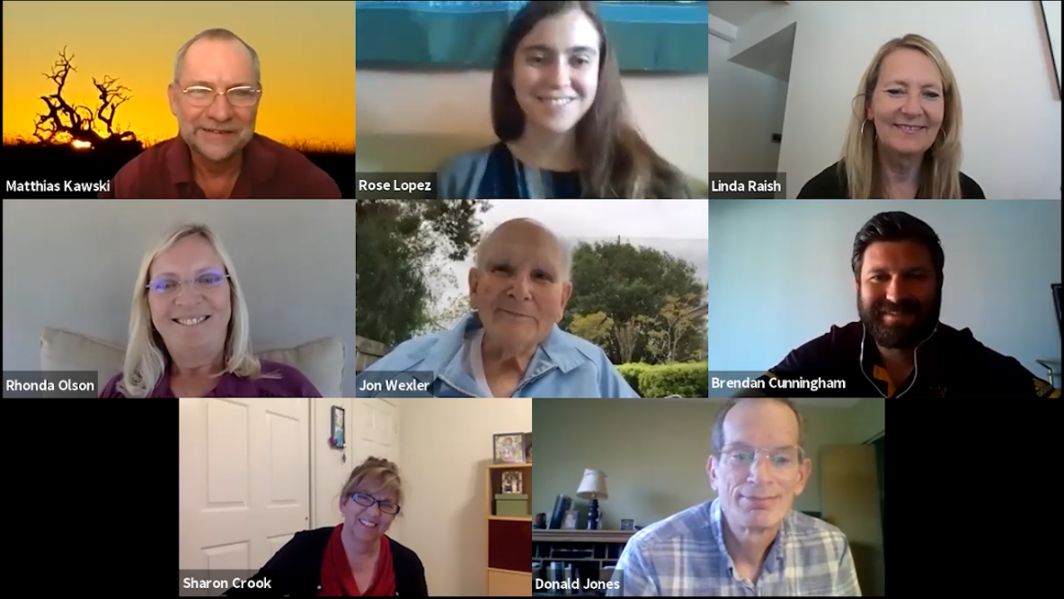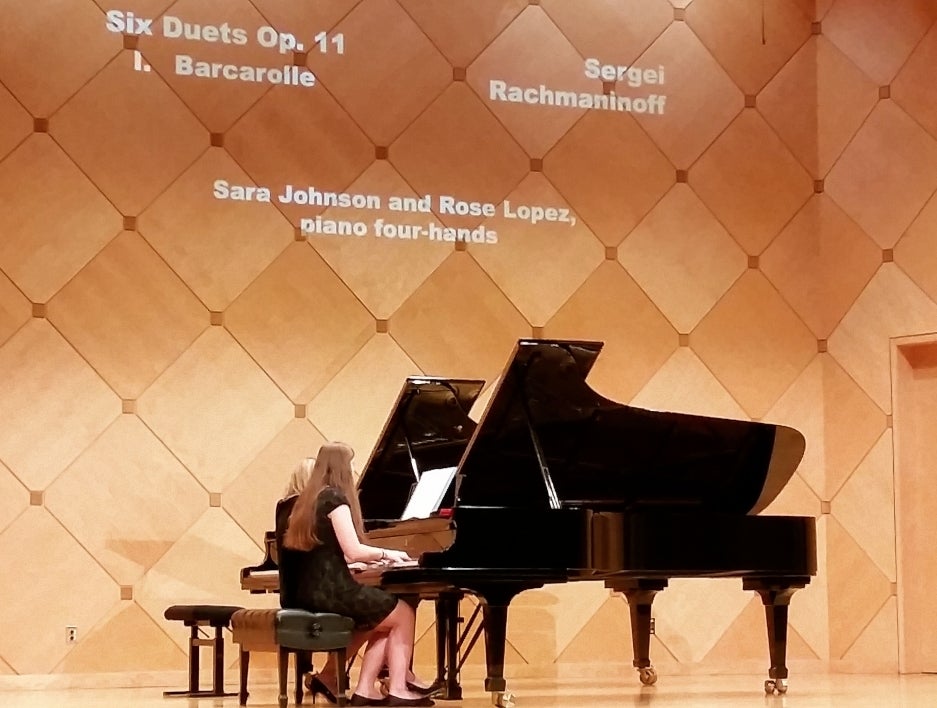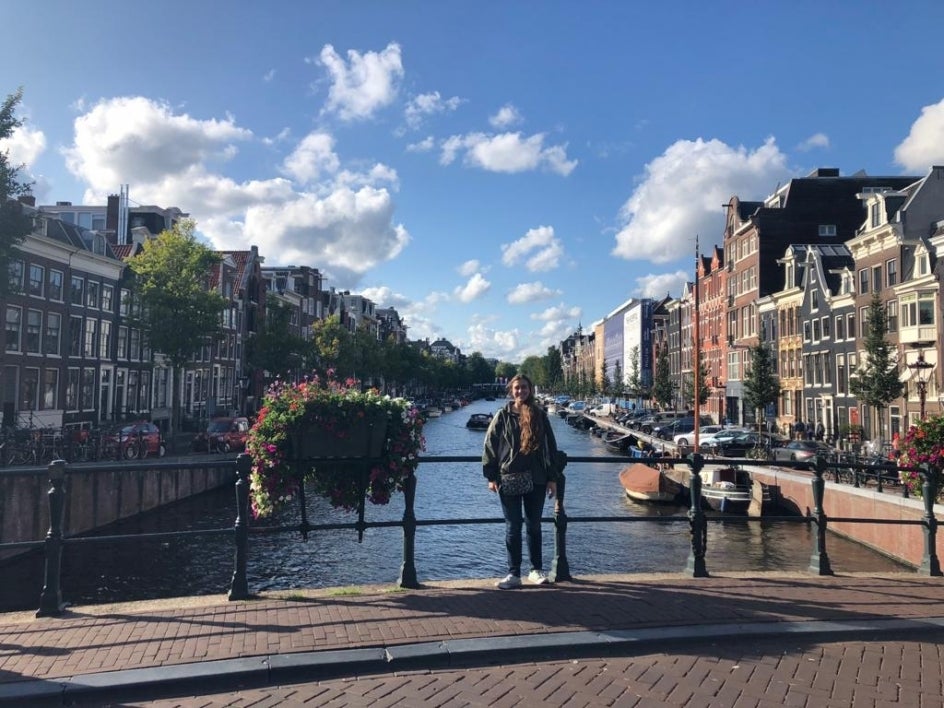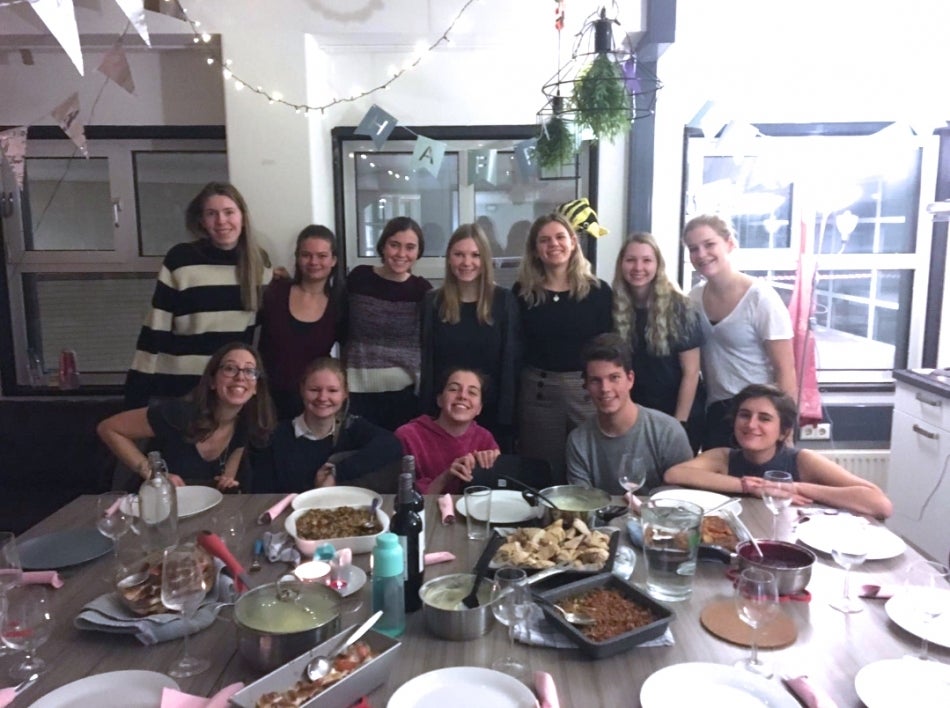Top math student earns Charles Wexler Mathematics Prize

Rose Lopez defended her Barrett honors thesis online via Zoom due to the COVID-19 pandemic.
Editor's note: This story is part of a series of profiles of notable spring 2020 graduates.
Rose Lopez is the recipient of the 2020 Charles Wexler Mathematics Prize, the highest honor a mathematics undergraduate can receive, and will be graduating with a Bachelor of Science degree in mathematics, a certificate in cryptology, and minors in physics and music performance (piano).
Lopez grew up in Mesa, Arizona, and attended Dobson High School. She decided to attend Arizona State University because it was close to home and she was awarded the Presidential Scholarship. Also, her dad, Juan Lopez, works as a mathematics professor at ASU.
She chose her major the same way many incoming students do. She simply picked her favorite subject and figured she could change it later if desired.
“I realized that I wanted to keep studying math when I discovered that I really enjoyed the more theoretical courses in abstract algebra and that I always enjoyed thinking about mathematical problems,” said Lopez.
She took Cryptography I and II during her sophomore year and really enjoyed them. She was pursuing the cryptology certificate and decided to take number theory and algebra courses because she could further understand the structure behind the problems they considered in cryptography classes.
Lopez enrolled in MAT 445: Theory of Numbers, taught by Nancy Childress, associate professor of mathematics and Barrett, The Honors College faculty honors adviser.
“MAT 445 is an upper-division course in number theory, with nearly all of the assignments and exam questions requiring proof-writing,” said Childress. “Rose is the only student in memory who did not have a single point deduction taken on any exam or assignment in the course.”
In fact, Lopez excelled in all of her advanced 400 level courses — groups, rings, number theory, cryptography, applied complex analysis, partial differential equations — and graduate courses in combinatorics, abstract algebra and complex analysis, more often earning an A+ than an A in these challenging classes. She is graduating with an exceptional cumulative GPA of 4.15.
“Ms. Lopez is an extraordinary student and a most deserving winner of the Charles Wexler Mathematics Prize,” said Al Boggess, professor and director of the School of Mathematical and Statistical Sciences.
In fall 2018, Lopez studied abroad at the University of Groningen in the Netherlands. She served as the secretary of the Math Club at ASU and is an active member of the Association of Women in Mathematics Student Chapter.
She also has served for the past two summers as construction coordinator for the nonprofit Sierra Service Project, leading high school and middle school volunteers to complete home repair projects in low-income communities. Lopez worked in Smith River and Imperial Beach, California, meeting with homeowners and community members to discuss projects. She drew up plans, purchased materials, and taught youth to use power tools so they could build projects such as wheelchair ramps, decks, stairs, fences, painting, and roofing.
Lopez worked on her Barrett honors thesis on the number field sieve for factoring integers, under the supervision of Childress. The number field sieve is a state-of-the-art factoring algorithm which uses algebraic number theory and is one of the fastest known factoring algorithms today. Factoring large integers into prime factors is an extremely difficult problem, yet is also important in cryptography. The security of the cryptosystem RSA is entirely based on the difficulty of factoring certain large integers into a product of two distinct large primes. While the number field sieve is one of the fastest factoring algorithms known, it is still not efficient enough to factor cryptographic-size integers.
This fall Lopez plans to study number theory as she starts the mathematics PhD program at the University of California, Berkeley.
“I have found it really interesting that the seemingly basic topic of primes and integers can be generalized to certain sets in larger fields and that there are many basic questions with extremely difficult and involved solutions,” said Lopez. “I am excited to learn more and study some of these questions at Berkeley.”
We asked the Valley native to share more about her experience as a Sun Devil.
Question: Which professor taught you the most important lesson while at ASU?
Answer: Dr. Katie Kolossa was my MAT 300 professor. I think she taught me the most important lessons because she taught me how to think critically about math problems and how to write clear proofs. She really emphasized the importance of memorizing definitions to really understand them, breaking problems down to the basic logic, and learning and imitating strategies from other proofs. She also emphasized the importance of struggling and getting stuck and frustrated with a problem and working through it. Learning MAT 300 with Dr. Kolossa opened me up to taking all the other courses that I have loved.
Q: What’s something you learned while at ASU — in the classroom or otherwise — that surprised you, that changed your perspective?
A: During my time at ASU I learned that you should study what you like more that what you think will be the most useful or lead to the best job. One of my friends said that she has no idea what the job market will be like when she is looking for a job, so that is why she just studies what she likes. This surprised me because it is not the common thing for people to say, and it changed my perspective because many people say that "pure" math is not as useful and applicable as "applied" math, but I realized after hearing her advice that it doesn't really matter which one is more useful.
Q: What’s the best piece of advice you’d give to those still in school?
A: I would advise people still in school to make sure that they are studying something that they like.
Q: What is most misunderstood about mathematics by the general public?
A: I think it is most misunderstood that mathematics is very creative. Many people think that math is about memorizing formulas and plugging the right numbers in, but really math is about discovering the formulas and figuring out why they work.
Q: What do you like to do in your spare time?
A: I like to play piano, go running, and to be with my friends.
Q: What was your favorite spot on campus, whether for studying, meeting friends or just thinking about life?
A: My favorite spot on campus was the math tutoring center. I tutored math and physics courses there and was also a lead tutor, so I helped train new tutors and lead discussions at staff meetings with my tutor group. I will have worked there for three years by the time I graduate. There were always friends inside, either working, studying or hanging out, and the tutoring center has a fridge and microwave!
Q: If someone gave you $40 million to solve one problem on our planet, what would you tackle?
A: I would tackle the problem of hunger. It is such a fundamental issue and horrible that so many people spend their lives stuck trying to put food on the table.
More Science and technology

ASU-led space telescope is ready to fly
The Star Planet Activity Research CubeSat, or SPARCS, a small space telescope that will monitor the flares and sunspot activity…

ASU at the heart of the state's revitalized microelectronics industry
A stronger local economy, more reliable technology, and a future where our computers and devices do the impossible: that’s the…

Breakthrough copper alloy achieves unprecedented high-temperature performance
A team of researchers from Arizona State University, the U.S. Army Research Laboratory, Lehigh University and Louisiana State…


